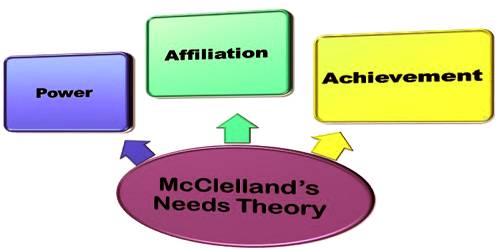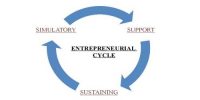McClelland’s Acquired Needs Theory
According to David McClelland, a person feels three types of needs as a result of one’s life experience. In his in his 1961 book ‘The Achieving Society’, David McClelland expounds on his acquired-needs theory. He described three types of motivational need. These needs are as follows:
(1) Need for affiliation: These are the needs to establish and maintain friendly and warm relations with others. A person with a high need for affiliation derives pleasure from being loved by all and tends to avoid the pain of being rejected.
(2) Need for Power: This means one’s desire to dominate and influence others by using physical actions. The people with high power needs seek high-level positions in the organization, so as to exercise influence and control over others.
(3) Need for achievement: McClelland found that some people have an intense desire to achieve. This refers to one’s desire to accomplish something with own efforts.
McClelland also suggests that these three needs may simultaneously be acting on an individual. But, in the case of an entrepreneur, the high need for achievement is found dominating one. In his view, people with a high need for achievement are characterized by the following:
(a) They set moderate, realistic and attainable goals for them;
(b) Prefer to situations in which they can find solutions for solving personal responsibility;
(c) They need solid feedback on how well they are performing;
(d) They have a need for achievement for attaining personal accomplishment.
(e) They look for challenging tasks.
Hence, McClelland’s Needs Theory posits that the person’s level of effectiveness and motivation is greatly influenced by these three basic needs.
















